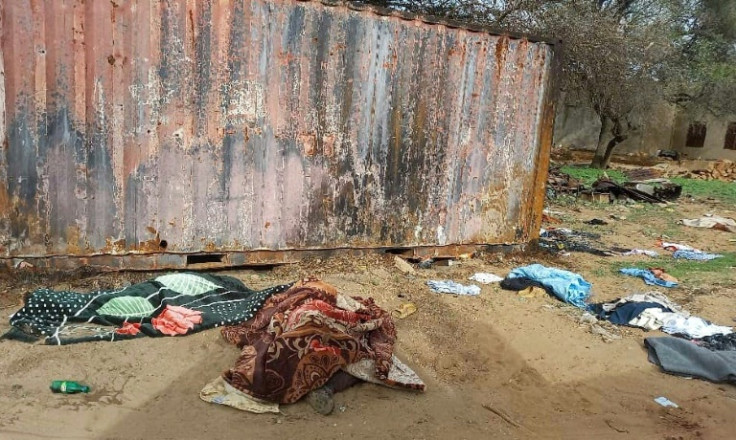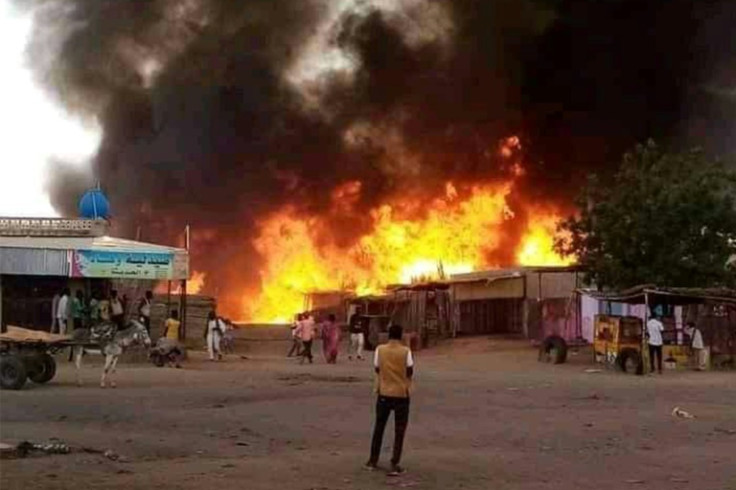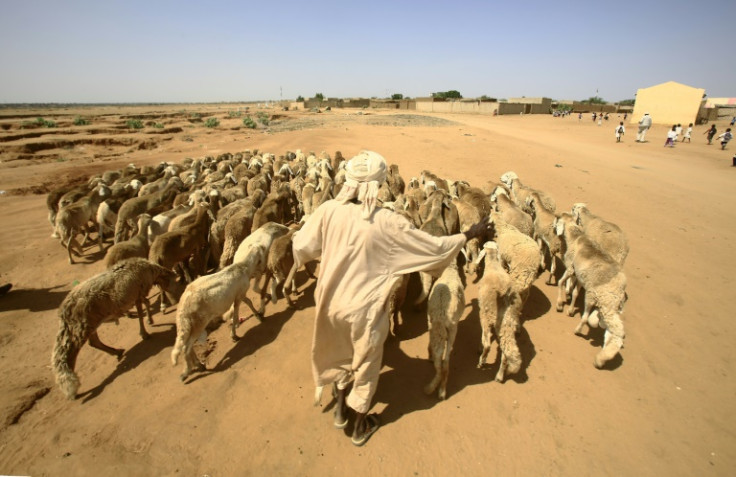'Constant Terror' In Key Darfur City As Fighting Closes In

Sudanese shop owner Ishaq Mohammed has been trapped in his home for a month, sheltering from violence in El-Fasher, the last major city in the country's vast Darfur region not under paramilitary control.
For more than a year, Sudan has suffered a war between the army, headed by the country's de facto leader Abdel Fattah al-Burhan, and the paramilitary Rapid Support Forces (RSF), commanded by his former deputy Mohamed Hamdan Daglo.
Experts have warned the northeast African country is at risk of breaking apart.
According to the United Nations, Sudan "is experiencing a humanitarian crisis of epic proportions", with famine threatening and more than 8.7 million people uprooted -- more than anywhere else in the world.
Among the war's many horrors, Darfur has already seen some of the worst. Now, experts and residents are bracing for more.
"We're living in constant terror," Mohammed told AFP by telephone, as the UN, world leaders and aid groups voice fears of carnage in the North Darfur state capital of 1.5 million people.
"We can't move for the bombardments," Mohammed said.
The RSF has seized four out of five state capitals in Darfur, a region about the size of France and home to around one quarter of Sudan's 48 million people.
"We're under a total siege," another resident, Ahmed Adam, told AFP in a text message that got through despite a near-total communications blackout in Darfur.
"There's no way in or out of the city that's not controlled by the RSF," he said.
For months, El-Fasher was protected by a fragile peace.
But unrest has soared since last month when the city's two most powerful armed groups -- which had helped to keep the peace there -- pledged to fight alongside the army.
Since then, El-Fasher and the surrounding countryside have seen "systematic burning of entire villages in rural areas, escalating air bombardments... and a tightening siege", according to Toby Harward, the UN's deputy humanitarian coordinator for Sudan.
At least 23 communities in North Darfur have been burned in apparent arson, Yale University's Humanitarian Research Lab found in a report last week.
The war's overall death toll, however, remains unclear, a factor "that captures just how invisible and horrific this war is", Tom Perriello, US special envoy for Sudan, told a congressional committee on May 1.
While figures of 15,000-30,000 have been mentioned, "some think it's at 150,000", Perriello said.
UN experts reported up to 15,000 people killed in the West Darfur capital El-Geneina alone.
Members of the non-Arab Massalit ethnic group in El-Geneina last year were targeted for killing and other abuses by the RSF and allied militias, forcing an exodus to neighbouring Chad, which the UN says is hosting more than 745,000 people from Sudan.
The International Criminal Court, currently investigating ethnic-based killings primarily by the RSF in Darfur, says it has "grounds to believe" both sides are committing atrocities in the war.
As El-Fasher is home to both Arab and African communities, an all-out battle for control of the city causing massive civilian bloodshed "would lead to revenge attacks across the five Darfur states and beyond Darfur's borders", said Harward.
In late April, United States ambassador to the UN Linda Thomas-Greenfield warned that El-Fasher "is on the precipice of a large-scale massacre".
The Janjaweed later evolved into the RSF.
"Everyone who hasn't managed to leave is trapped at home," camp resident Issa Abdelrahman told AFP.
"People are running out of food, and no one can get to them."
According to UN experts, the RSF has repeatedly besieged and set fire to villages and displacement camps in Darfur.
Their siege of El-Fasher has halted aid convoys and commercial trade, Harward said.
Shortages have also hit the El-Fasher Southern Hospital -- the city's only remaining medical facility, where personnel are "completely exhausted", a medical source told AFP.
Requesting anonymity for fear of both sides' well-documented targeting of medics, the source said "some doctors haven't left the hospital in over a month", tirelessly treating gunshot wounds, bombardment injuries and child malnutrition.
The Darfur region was already facing widespread hunger, but now "people are resorting to consuming grass and peanut shells", according to Michael Dunford, the World Food Programme's regional director for Eastern Africa.
Yet it is difficult for them to flee.
UNICEF Executive Director Catherine Russell said encirclement of El-Fasher by armed groups and restrictions on movement along key roads "are limiting families from leaving".
Early this year the RSF declared victories across Sudan, but the army has since mounted defences in key locations.
The RSF has for months threatened an attack on El-Fasher but has held off, in large part due to the locally brokered truce.
They also seem to have been deterred by "heightened international demands and warnings," according to Amjad Farid, a Sudanese political analyst and former aide to ex-civilian prime minister Abdalla Hamdok.
But these warnings are "falling on deaf ears", Harward says.
With the US having announced an imminent resumption of peace talks in Saudi Arabia, Farid said the RSF has focused anew on El-Fasher.
"These are negotiations the militia cannot enter from a position of weakness," Farid told AFP.




© Copyright AFP 2025. All rights reserved.





















